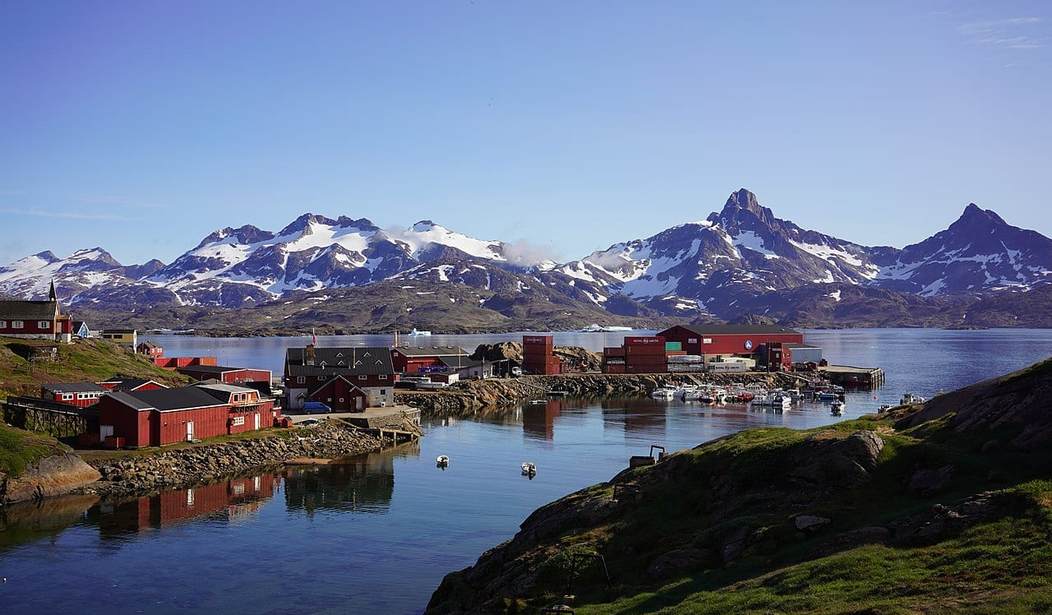On Thursday night, The Wall Street Journal caused a stir by reporting that President Donald Trump has considered buying Greenland because it’s a renewable energy hub and it holds a strategic position in the Arctic, where Russia and China have made moves for dominance. Yet the U.S. arguably does not need to own Greenland for the strategic position, and the country might be a drag on the U.S. national debt and economy. Denmark owns the massive island, but it mostly governs itself. Greenland’s government has twice opposed the idea of the U.S. purchasing the island.
”We have a good cooperation with USA, and we see it as an expression of greater interest in investing in our country and the possibilities we offer,” Greenland’s government said in a short statement. “Of course, Greenland is not for sale.”
In other words, they’re flattered but they’re not game for a Trump land deal.
The island’s ministry of foreign affairs sent a similar message, directing interested Americans to tourism, rather than acquisition. “[Greenland] is rich in valuable resources such as minerals, the purest water and ice, fish stocks, seafood, renewable energy and is a new frontier for adventure tourism. We’re open for business, not for sale,” the MFA wrote on Twitter.
#Greenland is rich in valuable resources such as minerals, the purest water and ice, fish stocks, seafood, renewable energy and is a new frontier for adventure tourism. We're open for business, not for sale❄️🗻🐳🦐🇬🇱 learn more about Greenland on: https://t.co/WulOi3beIC
— Greenland MFA 🇬🇱 (@GreenlandMFA) August 16, 2019
Of course, the question of a sale might be for Denmark to decide, but it seems unlikely the Danish crown (yes, there are still kings in Denmark) will surrender the island. Rule over the island is a point of historical pride for Denmark. In 1397, Denmark, Sweden, and Norway united in the Kalmar Union, which aimed to counter the influence of the Hanseatic League, a coalition of Northern European cities. Sweden seceded in 1523, but Norway did not split from Denmark until 1814 — after Denmark sided with Napoleon and lost.
Denmark kept Greenland, however — one of the last vestiges of the grand Kalmar Union.
Of course, Trump may be eyeing Greenland to establish a strong legacy, as well.
As The Wall Street Journal reported, Greenland is geographically part of North America but culturally and politically linked to Europe. In fact, if Trump were to seriously attempt to acquire the island, it would be the U.S.’s third attempt.
In 1867, the U.S. State Department under President Andrew Johnson launched an inquiry into purchasing the island. The negotiations failed, perhaps in part due to the fact that the U.S. had just pulled out of a long and devastating Civil War and the military was focused on Reconstruction. After World War II, President Harry Truman developed a geopolitical interest in Greenland and offered to buy it for $100 million in 1946. Denmark refused to sell.
Greenland is a strategic location for U.S. national security interests. A Cold War-era defense treaty signed in 1951 grants the U.S. military virtually unlimited rights in Greenland at America’s northernmost base, Thule Air Base. The base, 750 miles north of the Arctic Circle, includes a radar station critical for the U.S. ballistic missile early-warning system. It also plays a role in space operations.
Luke Coffey, director at the Heritage Foundation’s center for foreign policy, wrote in May that “Greenland does not receive attention from American policymakers in proportion to its security importance to the U.S.”
Coffey said a relationship with Greenland is “particularity important at a time when other global actors, such as China, are becoming more involved in the Arctic region.” The island “is actively trying to attract foreign investments, diversify its economy, and more closely integrate into the world economy.”
The Heritage expert urged closer ties with the island. “With Greenland located in North America, and with new potential transport links and tourism opportunities, the U.S. should pursue policies that develop economic ties between the two countries,” he wrote. “With new security, energy, and economic challenges and opportunities in the Arctic region, the U.S. needs a strong relationship with Greenland.”
Indeed, the Pentagon blocked China’s efforts to finance three airports on Greenland in 2018.
While the U.S. should pursue strong ties with Greenland, a purchase may be the wrong idea. It would give Trump a legacy, sure, but it would also likely drive America further into debt.
The island has vast natural resources, but it relies on $591 million in annual subsidies from Denmark, which make up about 60 percent of its annual budget.
It also seems that the government — not individuals — owns the island’s real estate. Kenneth Mortensen, a real estate agent in Greenland’s capital city Nuuk, told The Wall Street Journal, “You can never own land here,” since all land is owned by the government. “In Greenland, you get a right to use the land where you want to build a house, but you can’t buy.”
Some have wondered whether Greenland would be a red state or a blue state, but it seems the island runs on a far more Scandinavian model than either Democrats or Republicans would want. Trump may want the island for his legacy, but it seems U.S. national security interests can be met without an acquisition, which might involve a real headache for both parties.
Follow Tyler O’Neil, the author of this article, on Twitter at @Tyler2ONeil.









Join the conversation as a VIP Member